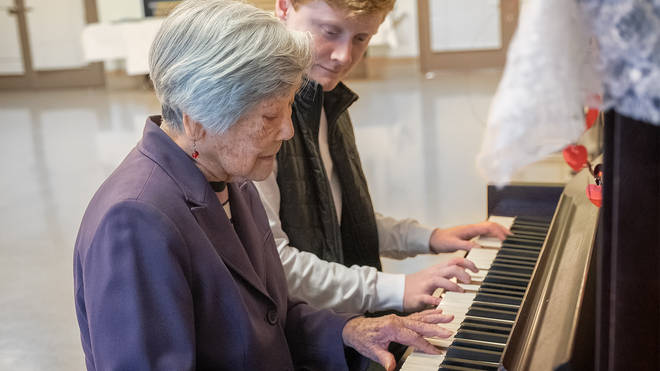Shared/Small group/1 on 1 Classes For Adults / Seniors


Scientists find taking up piano lessons at older age could delay dementia onset
A new study shows evidence that learning to play the piano could preserve memory function in healthy older adults.
There is already proof that learning a musical instrument is associated with the brain’s ability to change and adapt, and that music can help protect our brains against cognitive decline with age.
Now, a new study has investigated how six months of piano training can affect the brain compared to simply listening to and learning about music, in healthy older adults who have had no formal musical training.
The study, carried out by researchers in Germany and Switzerland, found that the fornix – a region in the brain associated with memory – degenerated at a slower rate in adults who actively took part in piano lessons compared to those who didn’t.
Based on previous evidence showing that playing a musical instrument could “promote healthy ageing”, researchers from various universities across Hanover and Geneva wanted to investigate the physical effects that learning a musical instrument over a longer period of time had on the adult brain.
Learning to play piano may help people cope with depression and anxiety
Playing the piano benefits your brain in a multitude of ways, according to a new study…
A new study has found that playing the piano improves the brain’s ability to process sights and sounds, and can boost your mood.
Researchers at the University of Bath placed 31 adults in a randomised control study, and separated them into three groups: music training, music listening, and a control group.
Beginner pianists with no prior musical training undertook weekly, one-hour piano lessons over a period of 11 weeks. The second group listened to music for an hour, while the third used the time to read and study quietly.
After just a few weeks, the beginner pianists reported significant improvements in recognising audio-visual changes in the environment and reported less depression, stress and anxiety.
One of the authors, Dr Karin Petrini said: “We know that playing and listening to music often brings joy to our lives, but with this study we were interested in learning more about the direct effects a short period of music learning can have on our cognitive abilities.”